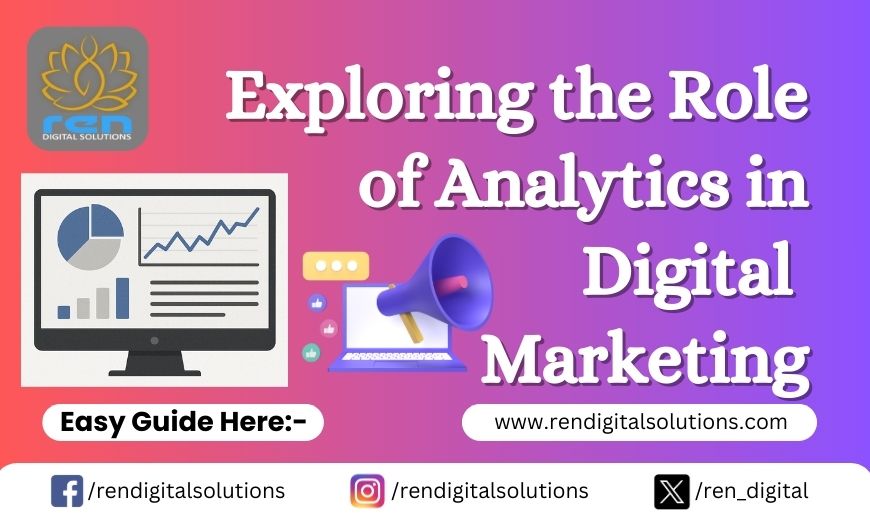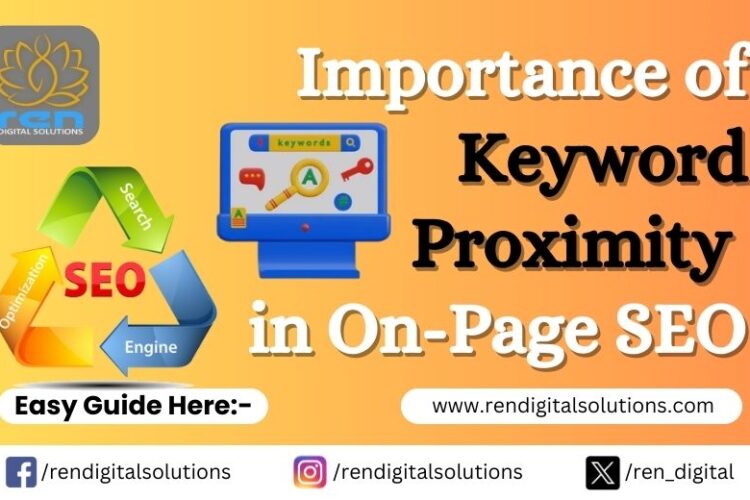
In the fast-paced, ever-evolving landscape of digital marketing, data is more than just numbers—it’s the secret weapon behind every successful campaign. From tracking user behavior to forecasting campaign performance, the role of analytics in digital marketing cannot be overstated. Whether you’re a small business owner, an eCommerce brand, or an enterprise, understanding how to leverage analytics can mean the difference between growth and stagnation.
In this comprehensive guide, we’ll explore how analytics drives smarter decisions, optimizes marketing spend, and reveals customer insights that elevate ROI. Let’s dive into the real-world impact and strategic importance of analytics in today’s digital marketing ecosystem.
What is Digital Marketing Analytics?
Digital Marketing analytics refers to the process of collecting, analyzing, and interpreting data from various online marketing activities. It helps marketers understand the effectiveness of campaigns, customer interactions, and engagement across channels like:
- Websites
- Social media
- Paid advertising (PPC)
- Email campaigns
- SEO initiatives
It involves tools like Google Analytics, Facebook Insights, SEMrush, HubSpot, and more—each providing a different lens into how users interact with your brand.
The role of analytics in digital marketing is to transform raw data into actionable insights that empower marketers to make informed decisions.
Why Analytics is the Backbone of Digital Marketing Strategy
You can’t improve what you can’t measure. That’s why analytics is the foundation of every high-performing marketing strategy.
Here’s why it matters:
- Performance Tracking: Analytics allows you to track the performance of every campaign—from click-through rates to conversion paths. With this insight, you can adjust strategies in real-time to improve ROI.
- Customer Behavior Insights: Want to know which pages your customers spend the most time on? Or which products get the most attention? Analytics uncovers patterns in behavior that help you tailor your message and UX design accordingly.
- Budget Optimization: Analytics tells you which channels are delivering the best results. That means you can spend smarter, not more. A well-optimized budget backed by analytics can double or triple your marketing returns.
- Enhanced Targeting: When you understand your customer’s journey, you can craft more personalized campaigns. Analytics helps segment users by demographics, location, interest, and even device usage.
- Strategic Forecasting: Want to know which product to push next month? Or what seasonal trends affect your traffic? Historical data can be a goldmine for future planning and forecasting.
The Role of Analytics in Digital Marketing Channels
Each digital channel has its own set of analytics tools and metrics. Here’s how analytics influences major digital marketing domains:
1. Website & SEO
For SEO, analytics helps track organic search traffic, bounce rates, and keyword performance. Tools like Google Analytics and Google Search Console help answer questions like:
- What are your top-performing landing pages?
- Which keywords bring in the most traffic?
- Where are users dropping off?
This insight allows SEO professionals to refine content, improve site structure, and boost user engagement.
2. Social Media Marketing
Social media platforms like Facebook, Instagram, and LinkedIn provide native analytics dashboards that offer data on:
- Engagement rates
- Follower growth
- Click-throughs
- Demographics
These metrics help shape your content strategy, posting schedules, and paid ad targeting. By studying what works, you avoid the trial-and-error approach and go straight to impact.
3. Email Marketing
Analytics in email campaigns focuses on:
- Open rates
- Click-through rates
- Unsubscribe trends
- Conversion rates
This helps marketers optimize subject lines, content layout, and send times for maximum engagement.
4. Paid Advertising (PPC)
PPC campaigns are driven almost entirely by analytics. From Google Ads to Meta Ads, analytics reveal:
- Cost per click (CPC)
- Cost per acquisition (CPA)
- Impressions and reach
- Return on ad spend (ROAS)
This data allows marketers to adjust bidding strategies, test creatives, and allocate budgets efficiently.
Real-Time Analytics vs. Historical Analytics
Understanding both real-time and historical analytics helps shape marketing direction:
- Real-time analytics: Useful for monitoring live campaigns, adjusting ads, and responding to current trends.
- Historical analytics: Useful for planning future campaigns, budgeting, and understanding long-term trends.
Both play a crucial role in iterative marketing—where ongoing optimization is key to long-term success.
How We Use Analytics at REN Digital Solutions
As the Best Digital Marketing Company in Ghaziabad, we follow a 5-step analytics-driven approach:
- Audit: Analyze the current data landscape—what’s being tracked, what’s missing.
- Set Goals: Define clear KPIs—traffic, conversions, engagement.
- Integrate Tools: Set up analytics dashboards and pixel integrations.
- Analyze: Collect, segment, and interpret data across channels.
- Act: Implement data-driven improvements across SEO, PPC, content, and social.
This cycle repeats every month as we keep refining campaigns for better ROI.
What Happens When You Ignore Analytics?
Let’s flip the script. What if you don’t use analytics?
- You’re marketing in the dark
- You overspend on underperforming channels
- You miss out on critical user insights
- You make decisions based on assumptions, not facts
In short, without analytics, your digital marketing efforts are likely to underperform. In a competitive space, that’s not a risk you want to take.
Analytics and ROI: Proving Marketing Value
One of the biggest advantages of data-driven marketing is accountability. With analytics, you can show exactly how your marketing spend converts into revenue. This builds trust among stakeholders, and ensures marketing is seen as a growth engine—not just a cost center.
At REN Digital Solutions, we provide monthly performance reports with clear KPIs and ROI breakdowns, so our clients always know what’s working—and what’s next.
Analytics + AI: The Future of Digital Marketing
With advancements in AI and machine learning, analytics is evolving beyond reporting into predictive modeling and automation. Tools are now capable of:
- Predicting future customer behavior
- Automatically adjusting bids in PPC campaigns
- Personalizing content in real time
The role of analytics in digital marketing will only grow stronger, blending with automation to deliver hyper-optimized results.
Final Thoughts: Why You Need Analytics-Driven Marketing Today
Digital marketing without analytics is like driving with your eyes closed. Data empowers you to make smarter, faster, and more profitable decisions.
The role of analytics in digital marketing extends far beyond tracking numbers—it’s about understanding customers, optimizing journeys, and driving revenue growth.
At REN Digital Solutions, we don’t just run digital campaigns—we fuel them with intelligent data, deep insights, and measurable results. That’s why we’re trusted as the Best Digital Marketing Company in Ghaziabad.



